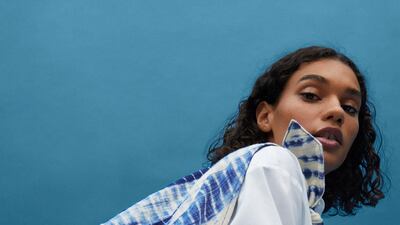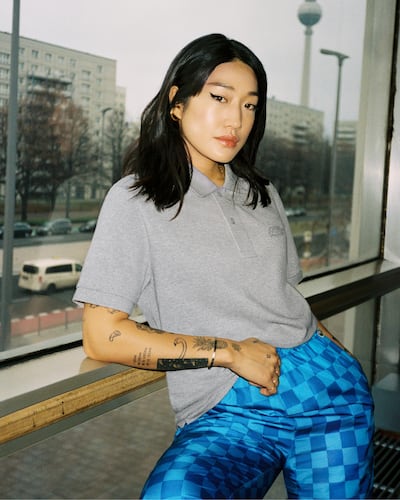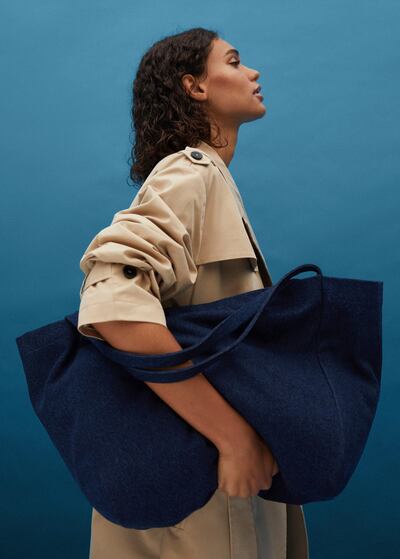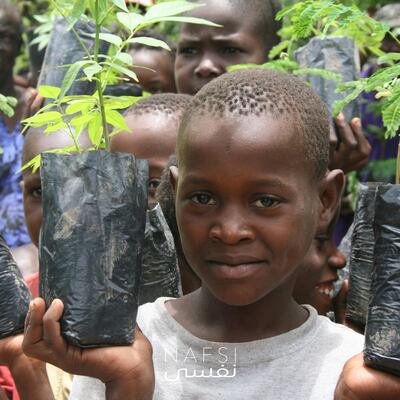One positive thing to have come out of last year was that, deprived of the glitz and glamour of the fashion industry, some of us learnt just how problematic it really is. While the statistics about pollution levels, wastage and water use can make for gloomy reading, the good news is that increasing numbers of fashion brands are facing up to their responsibilities and taking steps (albeit of different sizes) towards helping solve some of the issues at hand, steps that you as a buyer can also support.
Recycling cotton with Lacoste
Take the French company Lacoste, for example. A maker of high-end sportswear since 1933, it launched the “Loop” polo shirt in February, made using recycled shirts from its factories. It used its own polo shirt stock that had been rejected for tiny imperfections, and the tops that would have once been destroyed were instead unravelled to reclaim the cotton. That reused yarn was then mixed with virgin cotton and rewoven to create the new line. The name refers to the idea that every new top helps close the loop of production.
It may be just one product, but Loop demonstrates a deeper commitment to the Ellen MacArthur Foundation’s Make Fashion Circular programme, which Lacoste signed up to last December. Founded in 2009 by the record-breaking solo sailor, Dame Ellen MacArthur, the foundation aims to help companies adopt more sustainable practices, and promotes a circular economy model, in which resources such as cotton yarn are constantly recycled and reused, rather than used once and discarded.
As well as being partly recycled, another important element is that the tops are offered in just two colours, grey and blue. Because it contains thread of differing origins, each top is actually made of innumerable shifts in tone. While Lacoste could have bleached and re-dyed the finished tops, it chose not to, instead opting to normalise the look of recycled material, while reducing the use of polluting chemicals and saving tens of thousands of litres of water in the process.
At present, while the reclaimed threads make up just 30 per cent of the Loop tops (the other 70 per cent is still virgin cotton), it is still significant. The endeavour will certainly not fix fashion's ills but is a step towards a more efficient work practice that keeps countless imperfect tops out of landfill.
Saving water with Mango
With fast-fashion companies blamed for fuelling the rise of a throwaway attitude towards clothes, many brands that made their fortunes selling cheap, disposable clothes are now beginning to use their weight to support better practices.
Spanish high-street giant Mango announced a line of accessories made using entirely recycled cotton. Aptly called Upcycled Accessories, this tidy range of hats, oversize shoppers and sandals has been created from reclaimed cotton, and either left white (bleached), tie-dyed or as denim blue. This step marks the latest in a recent rash of initiatives by Mango, cementing its commitment to the United Nations Fashion Industry Charter it signed up to last year.
Last October, Mango also pledged to remove plastic bags from its supply chain, saving 160 million bags a year, making it the first Spanish fast-fashion empire to do so. It also recently unveiled a new unisex denim collection that, thanks to new technology for finishing and washing using ozone and lasers, will save 30 million litres of water compared to conventional methods. The company has also set ambitious targets for 2025, vowing that 100 per cent of the cotton it uses will come from sustainable sources, while 50 per cent of its polyester will have been reclaimed through recycling.
Collecting plastic waste with H&M
In a similar move, in January, Swedish high-street giant H&M launched a range of children's clothes called Bottle2Fashion, made in conjunction with water company Danone Aqua. Plastic debris collected from Indonesian beaches is transformed into recycled polyester, which in turn is made into children's staples such as hoodies, leggings and long-sleeved tees. In addition to helping create local jobs to collect, sort, clean and shred the bottles in Indonesia, H&M is encouraging a circular approach elsewhere by asking parents to return the clothes once they have been outgrown, so the garments can be recycled yet again.
Planting trees with Nafsi
Closer to home, Dubai fashion brand Nafsi is using upcycled or sustainably produced fabrics, and has raised its own standards by pledging to plant one tree for every item sold.
Partnering with One Tree Planted, a non-profit environmental tree-planting charity that helps reforest areas around the world, Nafsi has vowed to plant trees in vulnerable communities. Since it was founded in January 2020, the company has vowed to ulitilise mainly upcycled deadstock, working with organisations such as EcoEquitable in Canada that helps provide vulnerable women with work, transforming unwanted stock into new, recycled goods. Nafsi also works with Thrift For Good, the second-hand social enterprise that donates 100 per cent of its proceeds to Gulf For Good, an organisation that helps underprivileged children around the world.




